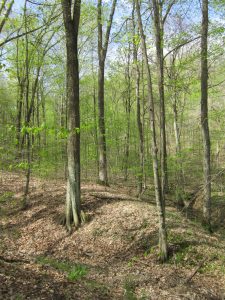By Marion T. Jackson, Ph.D.
Today, most humans seem to avoid emotional involvement with the people, places, and things of our life support system. We have become separated, by our own decisions and actions, from the wild creatures, the untamed haunts, the objects of nature that nurtured us as a species through the millennia of human evolution. Now, like ions shot from the sun, we flit between the opposing polarities of acquiring money, then expending it for instant gratification. No longer physically nor emotionally attached to a place, nor attuned to nature’s rhythms, and nature’s inhabitants, we drift in the twilight zone of an economic netherworld.
Detachment from our support base obviates any responsibility for its care. Stewardship requires emotional commitment, requires that we love what we steward. Increasingly we exercise control over the material world, without knowing what we are controlling, accelerating the exploitation of nature, thereby decreasing true stewardship.
Inside of Indiana’s state forests
The more we control the natural world, the less we able to express or receive true feelings of stewardship concerning Nature. Control breeds insensitivity to that which is controlled. Insensitivity fosters further separation from wildness and increased alienation from our environmental setting, along with wider divergence among human relationships. Greater separation requires greater control because being less knowledgeable of wildness, and less attuned to it, the new unknown thereby becomes ever more frightening, requiring greater insensitivity, more profound unknowing, resulting in our need to control. The feedback is positive and accelerating, now approaching the speed of light.
By no longer listening to, nor loving the land, nature’s spirit is being banished from the Earth, hence from ourselves. If Earth’s spirit now exists at all, it floats in the plasma of universe, separated from life, beyond our grasp, especially when needed most. The abiding faith in the nature which gave us our strength and a measure of peace, once obtained Antaeus-like from the earth surrounding us, from its cycles and its seasons from the wild places in which we once lived and moved, from fellow creatures that journeyed with us on our living voyage now no longer fills our lives, our minds, or our vocabularies. Not knowing or understanding what we once had, and have now largely lost, nature?s nouns, as part of our speech, have necessarily been lost in proportion to our control of the wild places and wild things that produced the names, justified them, and perpetuated them. By destroying what remains of Indiana’s old forests, we will also destroy what was once Indiana.
Thoreau was right. In wildness is the preservation of the World.
Dr. Jackson has studied Indiana’s forest ecosystem for his entire academic career. He earned his degree in Plant Ecology at Purdue University in 1964 under Dr. A. A. Lindsey, one of the world’s leading forest ecologists. He joined the faculty of the Department of Life Sciences at Indiana State University that same year where he taught until his retirement in 2002. While there, he taught and worked with a number of undergraduate and graduate students and published a large number of papers, book chapters, and books, many in forest ecology. Some of his major contributions were as author and editor of The Natural Heritage of Indiana, published in association with the Indiana Department of Natural Resources and the Indiana Academy of Science. He also published 101 Trees of Indiana, was associate editor of Habitats and Ecological Communities of Indiana: Pre-settlement to Present, and the Editor of the Proceedings of the Indiana Academy of Science for several years. While on sabbatical, Dr. Jackson served for a year as program ecologist for the Indiana Natural Heritage Protection Program with the Division of Nature Preserves, in the Indiana Department of Natural Resources and as Acting Director of The Nature Conservancy of Indiana in 1978/79, during the sabbatical of TNC’s first Indiana Director.
Please contact your state senator and ask him or her to support Senate Bill 420.

